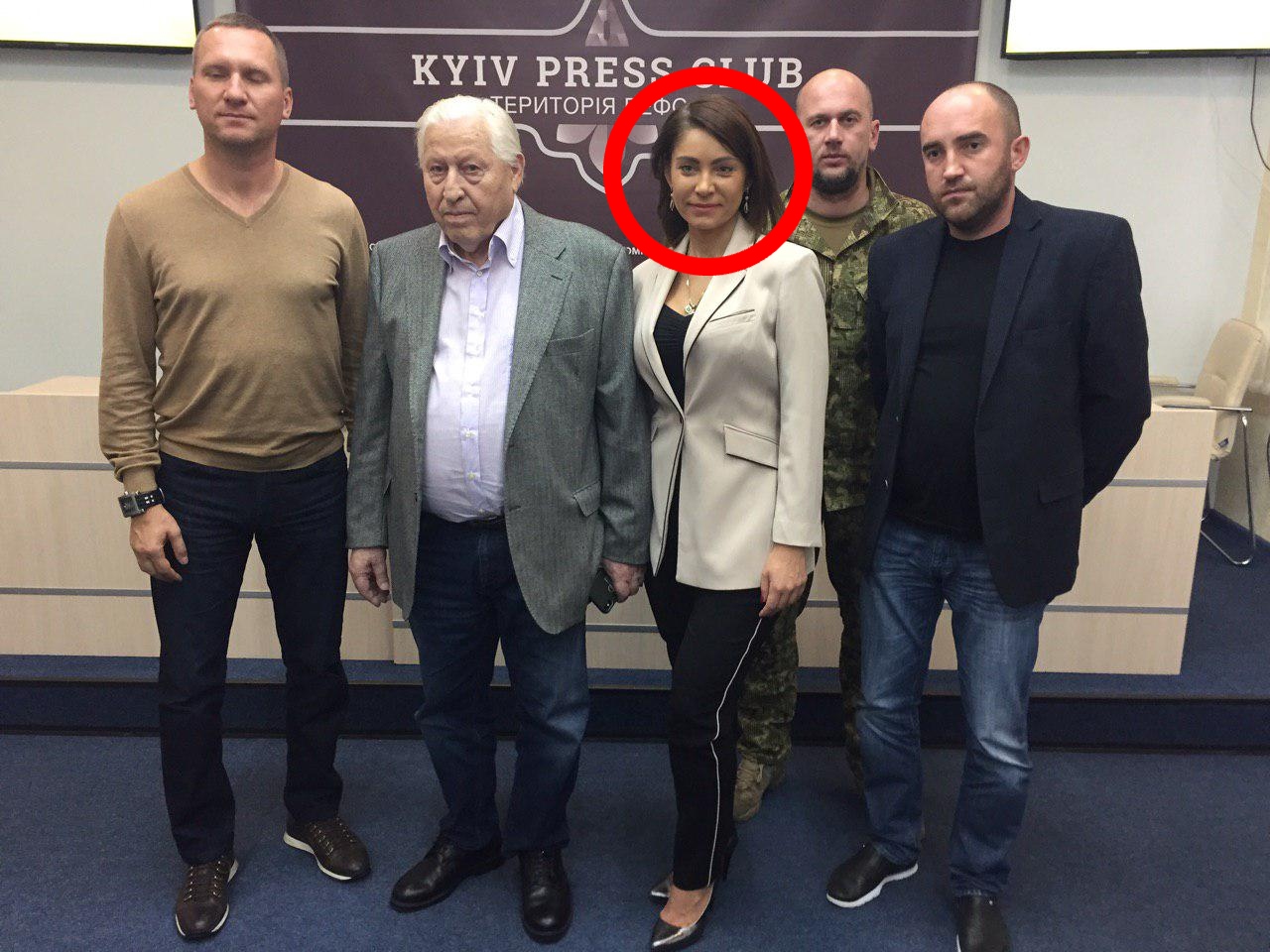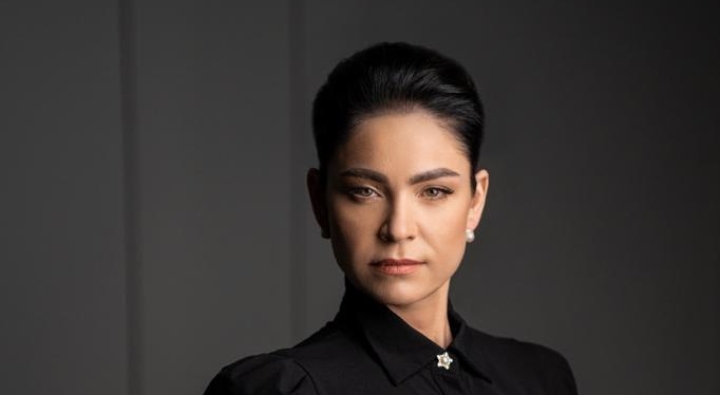Olena Duma, the former deputy head of the Chernihiv Oblast State Administration, has won the contest to head ARMA, receiving 6 out of 8 votes of the competition commission. However, Duma's victory is being castigated by Ukrainian experts, with corruption watchdog Transparency International Ukraine stating that her appointment "may bury ARMA."
The anti-corruption experts believe Duma's appointment carries significant reputational risks for the country and for the work of an independent and effective anti-corruption ecosystem and law enforcement agencies. "Olena Duma has over 22 years of experience in state bodies, and during this time she was very active in anti-corruption and trade union organizations, organized and participated in various rallies. Olena Duma's experience is not related to work in the field related to criminal justice, nor is it related to asset management or search. And this raises doubts," the report states.
Transparency International Ukraine also points to Duma's "close political connections," as in 2019, she directly participated in campaigning for sitting president Volodymyr Zelenskyy and discrediting then-incumbent Petro Poroshenko. This indicates the political engagement of the winner of the contest for the Head of ARMA, which could potentially affect her work in this position, Transparency International notes.
Transparency International Ukraine calls on members of the Ukrainian Cabinet of Ministers not to vote for the appointment of the winner of the contest to this extremely important position for the country.
Apart from her proximity to Zelenskyy circles, Olena Duma is connected to Rudy Giuliani, a former New York mayor and former US President Donald Trump's longtime adviser who pressured Ukraine to investigate baseless conspiracies about Joe Biden and his son in 2019 and is currently under investigation in the USA.
Particularly, Duma spoke at the press conference "Publicizing facts of corruption activities of the highest Ukrainian officials" held by Ukrainian-born businessman Sam (Samuil) Kislin, a close advisor and donor of Giuliani, in 2019 in Kyiv. Kislin, one of the witnesses that the House impeachment inquiry has requested documents from regarding Giuliani's efforts to pressure Ukraine to investigate Joe Biden and his son, has also been accused of having links to the Russian mafia and laundering money for them through his businesses. Kislin's main agenda in Ukraine involves his attempts to unfreeze and retrieve stolen assets from the Yanukovych regime. He purchased a Cypriot shell company holding a portion of the frozen funds and seeks their release, potentially worth tens of millions of dollars.
Her connection to Kislin was criticized by the Anti-Corruption Action Center, who claimed that associates of Deputy Presidential Office Head Oleg Tatarov, who retained his position despite the pressure of anti-corruption activists, were responsible for her election to the head of ARMA.
"[Duma] publicly helped Giuliani/Derkach to slander both Ukraine and the then-candidate and now-current US president [...] Joe Biden, on whom the decision of the [NATO summit in Vilnius] now depends, and thus the speed of our movement to NATO, and thus the strategic survival of Ukraine," the Anti-Corruption Action Center wrote.

Olena Duma dismissed the criticism against herself as a "dirty campaign" against a strong candidate:
"All the dirty articles and posts against me are based solely on speculation and distortion of facts," she wrote. "My candidacy is like a bone in someone's throat, because the issues raised by me and members of national trade unions concerned the protection of the national interests of the state and always achieved their goal, in particular, by dismissing officials and initiating of criminal cases against criminals. But for some reason, my 'fans' do not mention this," suggesting that the authors of the critical articles are getting paid to write them.
Roman Steblivsky, analyst of the Trap Aggressor project of the Ukrainian Statewatch NGO, told Euromaidan Press that ARMA is a complicated structure that manages hundreds of foreign businesses arrested in Ukraine; only in the last year, it got control of dozens of arrested Russian businesses. However, the agency's operations have been intransparent and questionable, repeatedly coming under the scrutiny of journalists, watchdogs, and anti-corruption activists.
One of the points for criticism is that ARMA does not have a public register of the arrested companies. This greatly complicates the work of anti-corruption activists and journalists, who cannot monitor what companies exactly were arrested and to what extent. Sometimes, the cars of an enterprise were seized while the buildings were not. Or, corporate rights were arrested only partially. Without a public register, there is ample space for abuse, Steblivskyi says.
Another reason for criticism of ARMA is the questionable procedures in which contests for companies hired to manage the seized assets are held. Businesses are required to visit ARMA's office to negotiate, which is a red flag for possible under-carpet deals.
The way that the assets are sold is yet another problem. ARMA is insufficiently agile to quickly sell perishable assets before they lose value, and overall, they are sold on an exchange whose website cannot be opened online via the publicly available link, raising further suspicions of intransparency.
"These problems have existed in ARMA for many years and were not being solved. And they will not be solved by electing a person to whom civil society has tons of questions," Steblivskyi said. "ARMA needs a candidate who had not been implicated in strange schemes with Trump's lawyers. It is a complex structure that requires a crystal clear person who must publicly present a transparent action plan for the reform of the ARMA. And when leading anti-corruption organizations have questions to this person from the very beginning, it is a bad step toward making this system transparent. The public sector must be confident that this person was not involved in schemes such as financing Trump," the expert added.
Ukraine's ARMA agency, in charge of thousands of seized Russian assets in Ukraine, has had a turbulent history since its inception in 2016 as part of Ukraine's visa liberalization process with the EU. In August 2021, Dmytro Zhoravovych took over as acting head of the ARMA. This happened after his predecessor in the "acting" status Vitalii Syhydyn was suspected of embezzling $400,000.
In August 2022, the competition commission failed to select a candidate for the position of Head of the ARMA.
On 31 March 2022, the competition commission announced the names of the candidates for the position of ARMA head who, based on the test results, passed to the next stages of the competition.
Olena Duma was then among the top three, scoring 80 points. Dmytro Zhoravovych, the acting Head of ARMA, received the same number of points. In addition, Konstantin Tkachenko, a lawyer who was the head of the SPFU's Corporate Rights Management Department until October 21, 2022, received 80 points.

